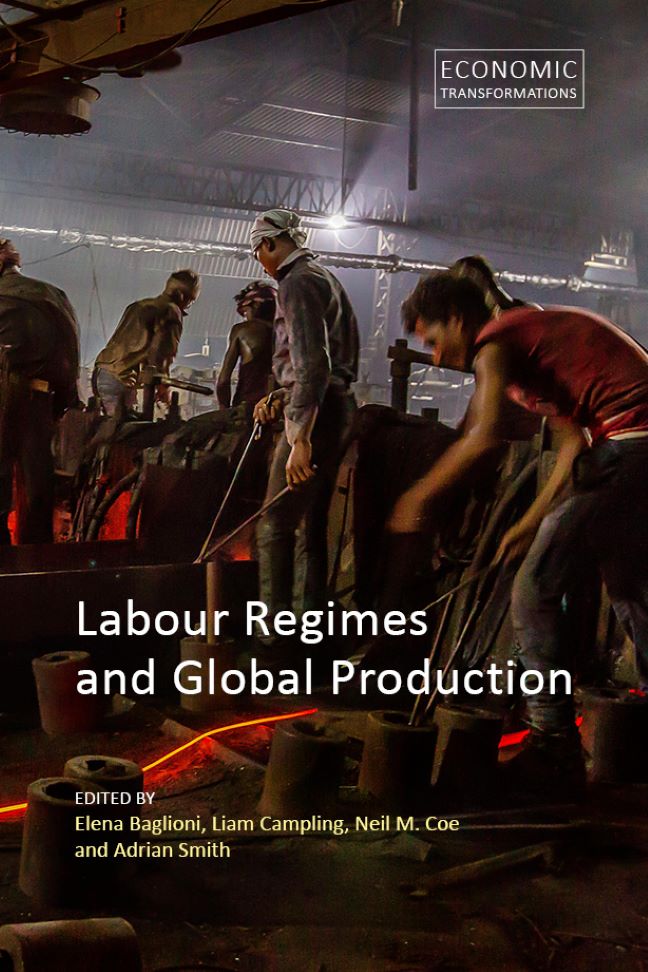18 - Conclusion: Mapping a Research Agenda for Labour Regime Analysis
Published online by Cambridge University Press: 20 January 2024
Summary
Introduction
This book has sought to explore and develop the potential of the labour regime concept for understanding the position and latent power of workers within the contemporary global economy. This is an analytical-cum-olitical project that involves placing workers centrally in our analyses of global production, without underestimating the challenges for workers’ prospects in the context of the intersecting dynamics of capital, state and society in which they are embroiled. In Chapter 1, we started our journey through the antecedents and the early and current development of labour regime analysis by asking a series of questions. How can we theorize labour regimes in the context of long-run historical processes of capitalist globalization? To what extent do labour regime concepts enable the development of comparative analyses across industries and places? How do labour regimes develop differentially in relation to contrasting global production systems? How do we make sense of the reproduction and control of specific labour processes in discrete places and industries? And to what extent can labour regime analysis provide a synthetic framework for understanding the political economy of contemporary capitalism?
The chapters in this volume have made considerable headway in tackling these questions. In developing the idea of labour regimes as temporary, place-specific stabilizations of capital– labour relations embedded in wider, multi-scalar dynamics, they have served to sharpen our understanding of what constitutes such regimes, and our knowledge of how and why they vary across industries, space and time. We have also seen how labour regimes both shape and are reshaped by the variegated landscapes of labour agency across the global economy, and how they are constituted beyond the traditional workplace by processes of social reproduction and household economies that are, typically, highly gendered. In turn, the chapters have also offered methodological reflections on how to undertake grounded labour regime analysis.
In this concluding chapter, our goal is not to synthesize and summarize the contributions of all the preceding chapters. Labour regime thinking is clearly a work in progress, and the commonalities across the chapters are also accompanied by important differences – concerning, for instance, which spatial scales and actors to foreground – that will continue to be debated and refined as the agenda develops.
- Type
- Chapter
- Information
- Labour Regimes and Global Production , pp. 317 - 330Publisher: Agenda PublishingPrint publication year: 2022

